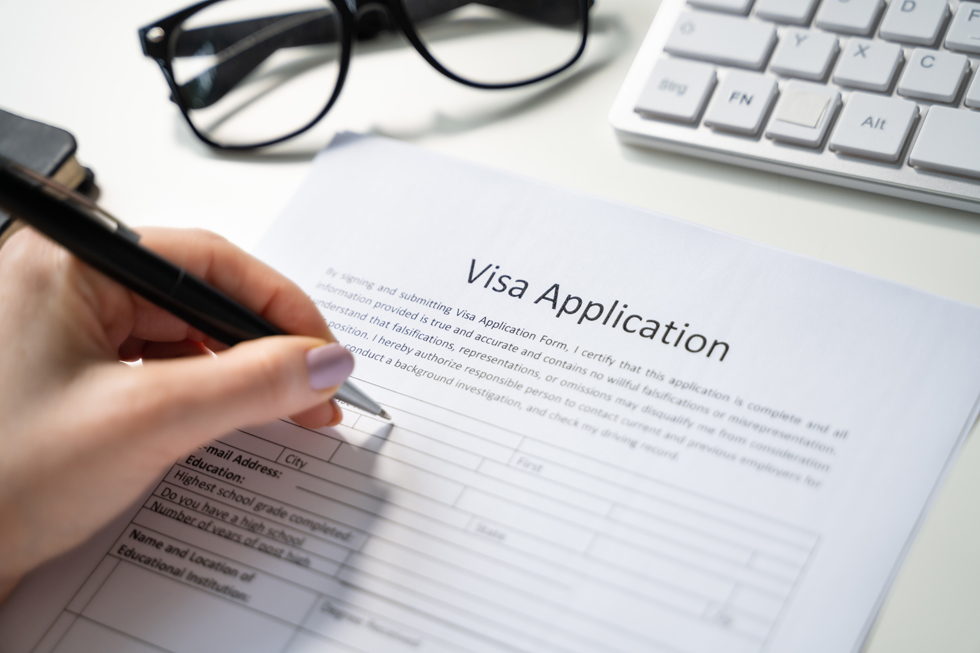Support making RiG more international!
Click here to start the surveySupport making "Research in Germany" more international! Your expertise and commitment are the key to the further development of promoting the German research landscape. We invite you to take part in our online survey and share your valuable experiences and opinions. Duration: 7-10 min.
Please start the survey at the end of your visit.
Entry and residence
Disclaimer
On 23 June 2023, the German Bundestag passed a new immigration law for skilled workers (Fachkräfteeinwanderungsgesetz). The new law will come into effect beginning in November 2023, with new regulations being introduced gradually. We plan to update our website when the law is fully in effect. Until then, please make sure to check individually if information on entry, the EU Blue Card, recognition of qualifications and family reunion is up to date. Some changes also affect refugees who are in an asylum procedure. Please note: the law aims at loosening regulations and will not create more restrictions. An English-language summary of the new regulations can be found on the Make it in Germany website.
Go to website "Make it in Germany"
As an international researcher, relatively simple entry conditions will apply to you. If you are a citizen of the EU, a citizen of the European Economic Area (ERA) or a Swiss citizen, you do not need any particular permit or visa. You can research and work here. You only need a valid passport or ID card.
If you are an international researcher already working or doing a PhD in the EU, you can also spend a certain period of time – up to 180 days for short-term mobility and up to a year for long-term mobility – conducting research in Germany without applying for any additional residence permit. Your host institution merely has to notify the Federal Office for Migration and Refugees accordingly.

Visa requirements for non-EU citizens
In all other cases, a visa will be required if you are not from the EU, a country of the European Economic Area or Switzerland and intend to work as a researcher in Germany. You will have to apply for the respective visa in your country of residence by visiting the relevant German diplomatic mission – an embassy or consulate – in person.
Depending on what you wish to do in Germany, special visa are available to you as a researcher:
- a visa for studying
- a visa for researchers and scientists or
- an EU Blue Card, a special residence title for international academics.
Make sure to check in good time with the German diplomatic mission in your country of residence to find out which conditions apply to you and which requirements you will need to meet. You should also check if there are any documents that need to be translated into German before your visa application or if any of your qualifications need to be officially recognised.
You can find more information on the recognition of foreign professional qualifications on our page for refugee researchers.
After your visa is approved, once you have arrived in Germany you will have to apply for a residence permit, usually at the local foreigners’ office or immigration office (Ausländerbehörde or Landesamt für Einwanderung). Some countries, such as Australia, Israel, Japan and the USA, have agreements with Germany: their citizens do not need an entry visa and only have to obtain the required residence permits after arrival.
Residence permits for international researchers
Upon arrival in Germany, you will apply on the basis of your visa for a corresponding residence permit. You can read here which residence permits are available to you as an international researcher and what rights they give you.
You are interested in a PhD in Germany and have been accepted into a PhD programme at a state-recognised university in Germany? Then you can obtain a residence permit for study purposes. It is valid for up to two years and can be extended.
Besides your confirmation of admission from the university, you also need to demonstrate that you can cover your living expenses – for example with a scholarship. However, as a PhD student you are also permitted to work for up to 120 days (or 240 half days) per year.
There are different ways to obtain a doctorate in Germany. If you work with a contract at a university or research institution while doing your PhD, you can apply for a residence permit for research purposes or an EU Blue Card (see below).
A residence permit for study or research purposes also allows you to study for up to 360 days in other EU member states (with the exception of Ireland and Denmark).
If you are a researcher with a university degree that gives you access to doctoral programmes, simple regulations will apply to you: you will receive a residence permit for research purposes. This presupposes that a research institution has signed a contract with you to pursue your research project. The research residence permit also enables you to do teaching work as a scientist.
If your research work is not publicly funded for the most part, your host institution must provide written confirmation that it will cover your costs of living and departure, if necessary.
This residence permit allows you to spend at least one year researching and teaching in Germany with the possibility to extend it for a longer period of time. After four years, you can apply for an indefinite settlement permit in Germany. Another advantage is that you can easily spend a temporary period researching and teaching in other EU countries (apart from Ireland and Denmark).
The EU Blue Card is a special residence permit for graduates from outside the EU who wish to work in Germany (or the EU).
You are entitled to an EU Blue Card if you
- have a university degree that is recognised in Germany,
- have a binding offer of a job that matches your qualifications in Germany and
- will earn at least 58,400 euros gross per year in your new job (in exceptional cases, and with the approval of the Federal Employment Agency, only up to 45,552 euros).
The EU Blue Card initially allows you to work in Germany for up to four years (less in the case of fixed-term employment contracts).
After 33 months, it is possible to obtain a settlement permit, which then allows you to live and work in Germany indefinitely. If you have a sufficient command of German (the requirement is level B1 of the Common European Framework of Reference for Languages), this is possible after just 21 months.
As an EU Blue Card holder, you can obtain the right of permanent residence in the EU after five years. In addition to the time you have spent in Germany, any periods in which you lived in another EU member state will also count towards the total.
If you are a researcher with special technical knowledge or a teacher or research associate in a prominent position with several years of professional experience, you count as highly qualified.
This means that you can obtain a permanent settlement permit immediately after entry. This requires you to prove that you can cover your living expenses in Germany.
Good to know
If you require a visa, check the requirements before starting the process; some bureaucratic procedures in your country may take time.
Visa application is by appointment only. Arrange an appointment as early as possible and check which (certified) documents you will need to bring with you.
Do not travel on a tourist visa if you wish to work in Germany. A tourist visa cannot be modified or extended.
In general, your visa remains valid for up to six months. Within this period, you must apply to the local immigration office for a residence permit on the basis of your visa.
Citizens of so-called Schengen countries can cross the borders of all Schengen Agreement member states without passport checks. However, not all EU members fully apply the Schengen Agreement, while some non-EU countries do. If you have a Schengen visa, you can spend up to 90 days in the Schengen area. Visiting other EU states which are not Schengen states may require a separate visa.
More information
- Visa navigator of the Federal Foreign Office
- FAQs regarding visas for Germany by the Federal Foreign Office
- Visa and entry regulations explained step by step on the Make it in Germany website
- Interactive world map with an overview of Germany’s diplomatic missions abroad on the Make it in Germany website
- Information for scientists coming to Germany by the Federal Office for Migration and Refugees (BAMF)
- Information on entry requirements as well as short- and long-term mobility within the EU for non-EU citizens on the EU Immigration Portal